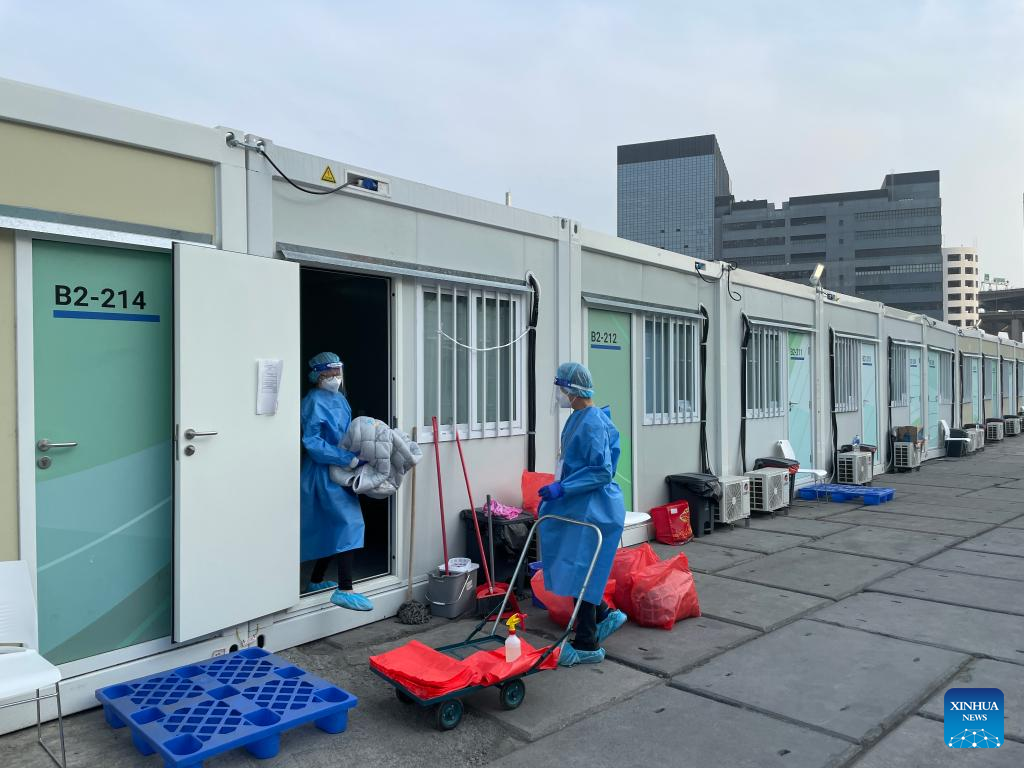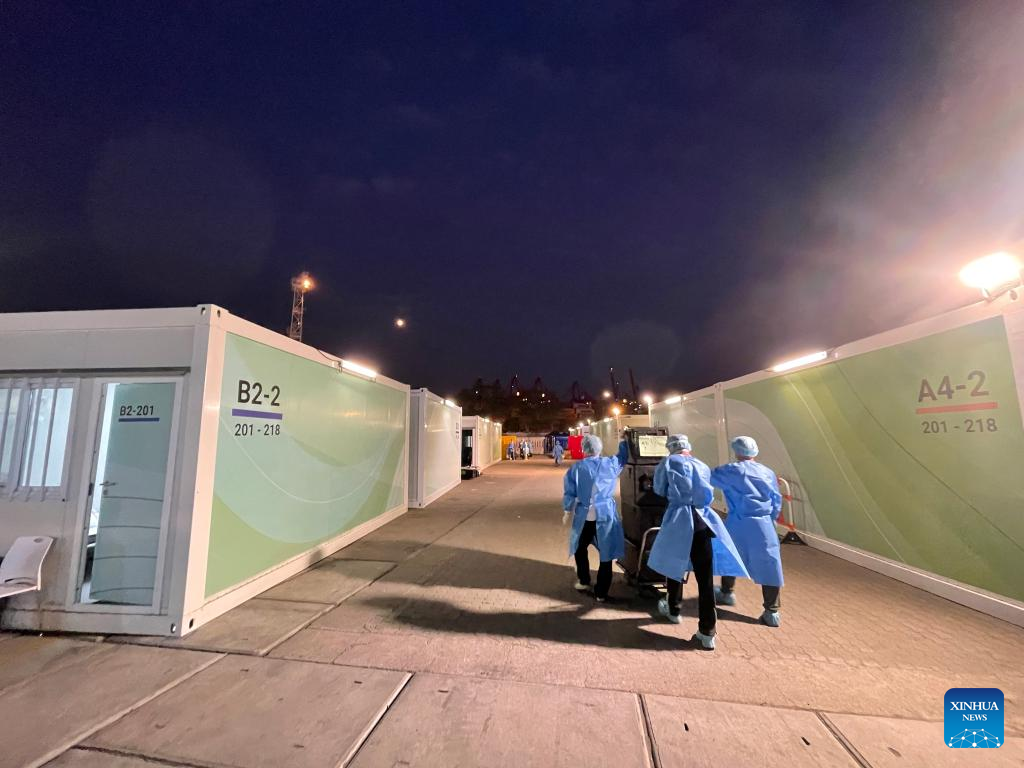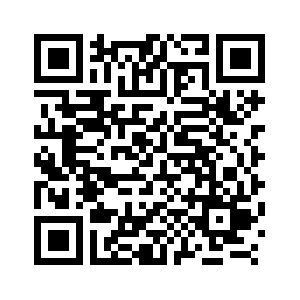
Cellphone photo taken on March 17, 2022 shows medical staff cleaning up and disinfecting a room at a community isolation facility in Hong Kong, south China.(Xinhua)
Editor's note: China's Hong Kong Special Administrative Region (HKSAR) has been fighting its worst wave of COVID-19 infections since the outbreak of the pandemic. A mainland-aided community isolation facility located in Tsing Yi started admitting its first batch of COVID-19 patients in Hong Kong on March 3. The facility, completed within just one week, is capable of accommodating about 3,900 asymptomatic or mildly ill patients.
A resident in Hong Kong hospitalized at the facility presents the first-person experience of how he, along with his new neighbors, feels about the facility and the epidemic.
HONG KONG, March 17 (Xinhua) -- Because my self-test result still showed positive traces the day before yesterday, the staff at Tsing Yi said I had to wait until the test is completely negative. To be responsible for myself and others, I'll stay here for a few more days.
My former neighbors have basically all left. I've been texting with the family of three next door from time to time, and learned that the little boy is already taking online classes, while his father has returned to work. The lady across the lane also gave me lots of snacks and cup noodles when she left yesterday.
They all came here in compliance with the HKSAR government's arrangements. I saw in them Hong Kong people's compliance with the law, spirit of contract, and the traditional Chinese virtue of loving people with kindness.
This pandemic has been around for more than two years, and it recently has led me to think about two issues related to rights and responsibilities: vaccines and freedom.
I am not a doctor or an expert, but I believe that the end of this pandemic will depend on vaccines and immunity. Vaccination is both a self-serving and altruistic act. However, as of March 16, the percentage of the population in Hong Kong who have received two doses of the COVID-19 vaccine is 81 percent.
This percentage does not seem too low compared to other countries and regions, but it is still not good enough for a city like Hong Kong, which is one of the most densely populated places in the world.
I recall that when Hong Kong launched its COVID-19 vaccination program last year, many people were hesitant because they were worried about the side effects of the vaccine. This concern is certainly understandable: individual wellbeing and public health may sometimes be in conflict. But between the possibility of side effects and the possibility of serious illness after infection, I would rather choose the former.
There have been numerous domestic and international studies proving that vaccination can greatly reduce the likelihood of severe and critical illness after infection. The HKSAR government does not mandate vaccination, and it is an individual's right to choose not to be vaccinated, but choosing to be vaccinated is a responsibility we have to the overall interest of Hong Kong society.
And I would like to share some of my thoughts on freedom. Hong Kong has been the world's freest economy for many years and has been attracting global talent and capital with its famed freedom. COVID-19 has greatly affected the freedom of people to enter and leave Hong Kong, and many service industries have ground to a halt due to the surging fifth wave of infections.
Hong Kong must have a lot of conclusions to draw in the future about the pandemic. In my opinion, how to balance the freedom of individuals and groups in a public emergency with the overall cost to society is probably the most important lesson to learn, both for the residents and the HKSAR government.
Looking back to 2021, the vast majority of Hong Kong residents were able to comply with the COVID-19 control policies and measures introduced by the HKSAR government. But this fifth wave, compounded by the high transmissibility of the Omicron strain, began as precisely the result of individuals' non-compliance with the ordinance, costing more people irreparably in freedom and lives.
The HKSAR government should learn. It needs to continuously improve the mechanism for amending and enforcing laws and regulations during emergencies. The Hong Kong community should understand the situation correctly, be more flexible, and regain individual freedom at a smaller cost to society.
May this epidemic prompt all sectors of Hong Kong to reflect so as to do better. ■

Cellphone photo taken on March 17, 2022 shows medical staff delivering food for people under quarantine at a community isolation facility in Hong Kong, south China.(Xinhua)



